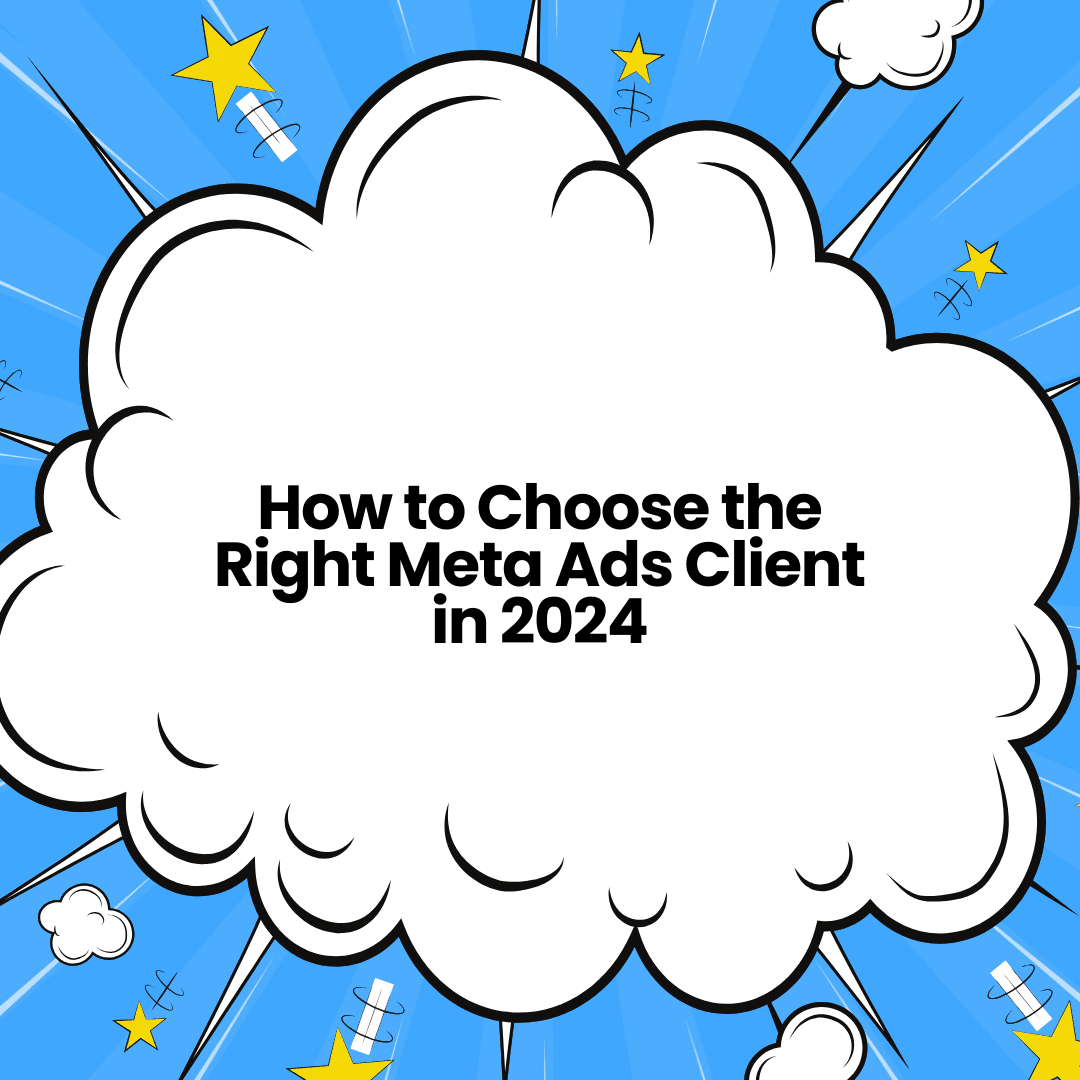Choosing the right clients to work with can make or break your success as a Meta Ads specialist. It’s not just about securing a deal; it’s about ensuring the partnership will be beneficial for both sides in the long term. While it may seem tempting to accept every client who expresses interest, carefully vetting potential clients can save you time, stress, and improve your overall results. Here are some key priorities to consider when picking a Meta Ads client.

1. Business Alignment
One of the first things to consider is whether the client’s business aligns with your expertise and strategy. Meta Ads require specialized approaches depending on the niche, industry, and business goals. For example, running ads for an e-commerce brand might look very different from handling campaigns for a local service-based business. If your strengths are in a particular industry or type of advertising (like lead generation vs. conversion ads), focus on clients whose needs match your expertise.
Tip: Ensure the client’s products or services are something you believe in. If you’re passionate about their mission, it will reflect in the quality of your campaigns.
2. Ad Budget and Financial Stability
Managing Meta Ads effectively requires a solid advertising budget. Before taking on a client, have a clear understanding of how much they are willing to invest in ad spend, your fees, and any additional services like creative production. Working with clients who don’t have the financial capacity to run substantial or ongoing campaigns could result in frustration for both sides. A consistent budget is key to running successful ads on Meta platforms.
Tip: Have transparent conversations early on about budgets and expected results, setting realistic timelines for return on investment (ROI).
3. Clear Objectives and KPIs
A good Meta Ads client knows what they want from their ad campaigns. Whether it’s increasing brand awareness, driving sales, generating leads, or building engagement, they should have clear goals in mind. Ask potential clients about their objectives and the KPIs (Key Performance Indicators) they are looking to measure success by. Without clear objectives, it’s challenging to determine whether a campaign has been successful, which can lead to dissatisfaction.
Tip: During initial discussions, help clients clarify their goals and set measurable KPIs. This establishes a foundation for effective campaigns and meaningful results.
4. Commitment to Content and Creative
Meta Ads rely heavily on visually appealing and engaging content. If your client is not committed to producing high-quality creatives—whether it’s video, images, or copy—it will hinder the effectiveness of their campaigns. Make sure they understand the importance of investing in strong visuals, as Meta platforms like Facebook and Instagram thrive on creative content.
Tip: Discuss whether the client will handle their own creative production or if they will need your assistance in creating it. A collaborative approach to content development can improve overall results.
5. Communication and Collaboration
A great client relationship is built on solid communication and collaboration. You’ll want to assess early on whether the client is open to feedback and is responsive to your ideas. Will they provide the necessary assets on time? Do they respect your expertise and trust you to execute campaigns effectively? These questions are critical because a lack of communication can lead to misaligned goals and underperforming ads.
Tip: Set expectations for regular check-ins and reporting so the client is aware of how campaigns are performing and can make decisions based on real-time data.
6. Willingness to Adapt
The digital advertising landscape is constantly changing, and Meta Ads are no exception. Sometimes, ads won’t perform as expected, or strategies will need to shift based on evolving trends, policies, or audience behaviors. It’s important that clients understand this and are willing to make changes when necessary. Clients who expect instant results without room for flexibility may not be the best fit.
Tip: Ensure clients are educated about the iterative nature of Meta Ads. Regular testing and optimization are crucial to long-term success.
7. Long-Term Potential
While short-term projects can be rewarding, Meta Ads work best when executed over time with consistent optimization. Look for clients who are interested in forming a long-term partnership rather than one-off campaigns. This allows you to better understand their audience, fine-tune your strategies, and achieve more sustainable results.
Tip: During your initial consultation, gauge the client’s interest in long-term collaboration and be upfront about the benefits of ongoing campaign management.
8. Ethics and Values
It’s also important to consider the ethics and values of a potential client. Working with businesses that promote products or services you don’t believe in can cause friction in the working relationship and reflect poorly on your reputation. Ensure the client’s business practices and values align with your personal and professional ethics.
Tip: Do a quick background check on potential clients to ensure they align with your values. Saying no to a client can be better in the long run if their practices don’t align with your moral compass.
Conclusion
Selecting the right Meta Ads client is more than just the immediate financial opportunity. It’s about aligning with businesses that value your expertise, have clear goals, and are committed to achieving success through collaboration. Focusing on these priorities ensures that your Meta Ads campaigns thrive, delivering both client satisfaction and long-term professional growth. Feel free to contact us with any questions or concerns about Meta Ads—we’re here to help!

